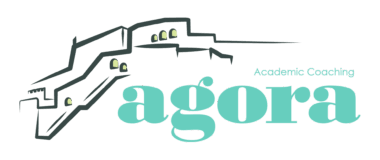Courses
Course 1: Teaching for a Sustainable Future – Environmental Education and Action in Schools
Course Description
This course focuses on empowering educators to integrate environmental sustainability into everyday teaching and school culture. It explores key concepts such as climate change, biodiversity, circular economy, and sustainable development, while offering hands-on tools and strategies for project-based learning and student engagement. Through experiential activities, outdoor learning, and collaborative workshops, participants will learn how to inspire environmental responsibility, promote critical thinking, and cultivate eco-conscious attitudes in young learners. The course supports the development of green skills and aligns with the UN Sustainable Development Goals (SDGs).
Course Aims
- To build understanding of core environmental issues including climate change, pollution, biodiversity loss, and sustainability.
- To equip educators with pedagogical tools and project ideas for integrating environmental education into the curriculum.
- To promote awareness of the United Nations Sustainable Development Goals and their relevance in education.
- To foster eco-friendly behaviors and sustainable thinking in students through active, inquiry-based learning.
- To support outdoor, experiential, and cross-disciplinary teaching methods that connect learners with nature.
- To encourage whole-school approaches to sustainability through green practices and community involvement.
- To develop skills for evaluating environmental impact and making responsible choices in daily school life.
- To inspire global citizenship, environmental stewardship, and a long-term commitment to protecting the planet.
Course 2: Embracing Cultural Diversity – Global Citizenship and Intercultural Understanding in Education
Course Description
This course explores the vital role of culture in shaping identity, communication, and learning within diverse educational settings. It emphasizes the importance of intercultural understanding and global citizenship, offering educators tools to foster inclusivity, respect, and empathy in the classroom. Through real-world examples, collaborative projects, and reflective practices, participants will learn how to create culturally responsive environments that value diversity and promote meaningful cross-cultural dialogue.
Course Aims:
- To examine the impact of culture on student identity, learning styles, and classroom dynamics.
- To promote awareness of cultural diversity and its value in education and society.
- To develop intercultural communication skills for use in diverse learning environments.
- To equip educators with strategies for creating inclusive and culturally responsive teaching practices.
- To foster empathy, respect, and global awareness among students through culturally rich activities.
- To encourage reflection on personal cultural perspectives and their influence on teaching.
- To align teaching practices with the principles of global citizenship and UNESCO’s education goals.
- To support collaboration among students from different cultural backgrounds through shared projects and dialogue.
Course 3: Navigating Education in the Digital Era – AI, Technology Use, and Cybersecurity Awareness
Course Description
This course examines how modern technology shapes both society and the educational landscape, with a special emphasis on AI tools such as ChatGPT. It explores the challenges of digital overuse and offers practical approaches for responsible tech integration. Additionally, it covers essential cybersecurity practices to promote safe and informed technology use in school settings.
Course Aims:
- To explore the influence of digital technologies and artificial intelligence (AI) on education and society.
- To familiarize educators with AI tools like ChatGPT and their practical applications in the classroom.
- To raise awareness about digital addiction and its impact on students' well-being and learning.
- To provide strategies for the responsible and ethical use of technology in educational settings.
- To enhance understanding of key cybersecurity concepts relevant to schools and classrooms.
- To promote safe online behavior and responsible digital citizenship among students and educators.
- To empower teachers to integrate technology effectively while maintaining a healthy digital balance.
- To encourage critical thinking about the opportunities and risks associated with emerging technologies in education.
Course 4: Discovering Ancient Greek Civilization – Cultural Heritage and Education in Nafplio
Course Description
This course offers an immersive exploration into the legacy of Ancient Greek civilization and its relevance to contemporary education. Held in the historic city of Nafplio, participants will engage with the cultural, philosophical, and artistic contributions of ancient Greece through on-site visits, workshops, and collaborative learning. The course emphasizes the importance of cultural heritage in shaping identity and critical thinking, while equipping educators with tools to integrate classical themes into modern teaching practices. Through experiential learning, participants will gain a deeper appreciation of ancient Greek values and their timeless impact on global culture and education.
Course Aims:
- To explore the key achievements and values of Ancient Greek civilization and their lasting influence on modern society.
- To highlight the importance of cultural heritage and historical consciousness in education.
- To provide educators with creative strategies for integrating classical themes (philosophy, democracy, arts, mythology) into their teaching.
- To foster appreciation of ancient Greek culture through experiential activities and guided visits to archaeological and historical sites in Nafplio and surrounding areas.
- To promote intercultural dialogue by examining how ancient Greek ideals continue to shape global thought and citizenship.
- To strengthen cross-curricular links between history, language, arts, and civic education.
- To develop reflective teaching practices that encourage students to connect the past with contemporary cultural issues.
- To inspire educators to act as cultural ambassadors, preserving and promoting the values of ancient heritage within diverse learning communities.
